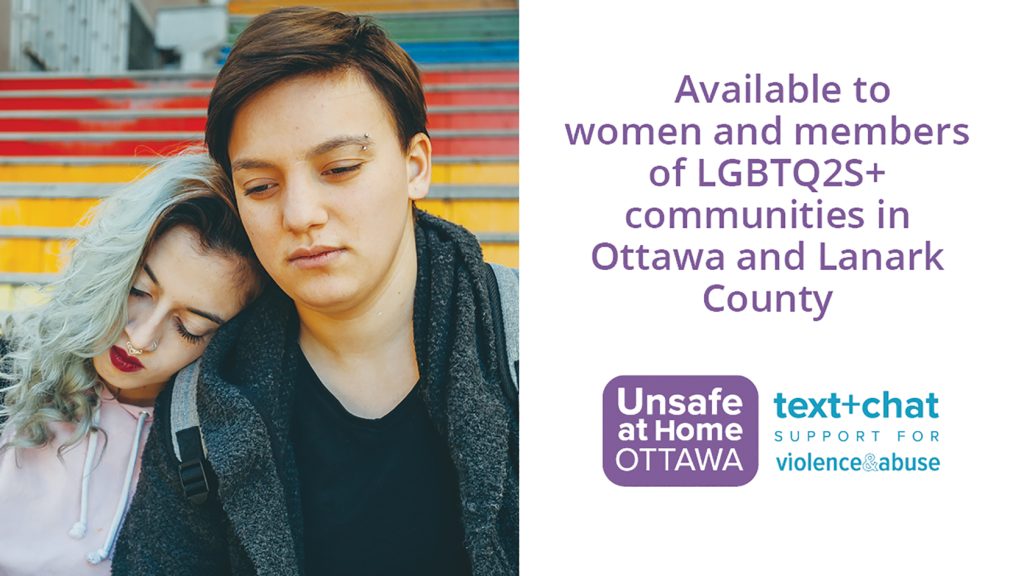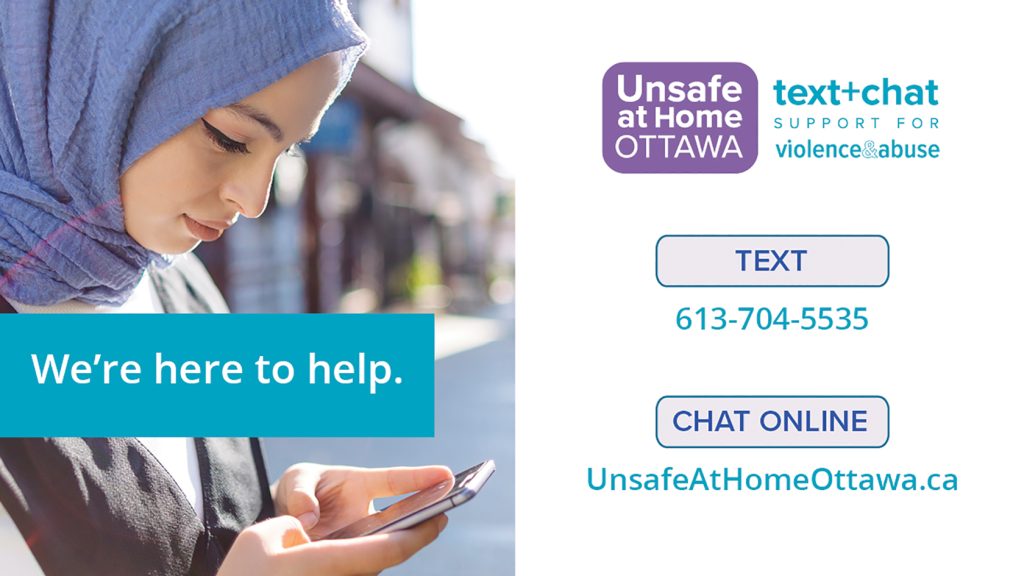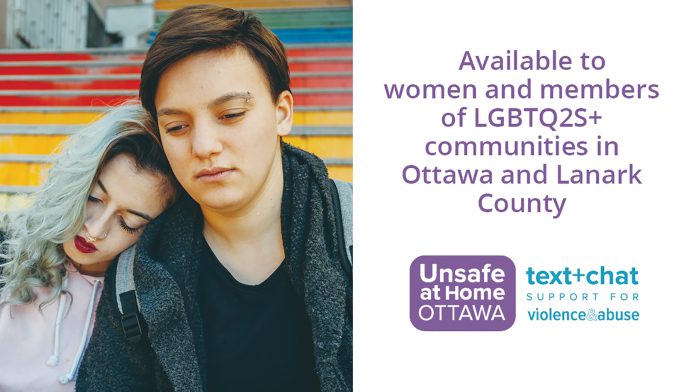
By Maureen McEwan
As the province declared its second state of emergency and issued a stay-at-home order in mid-January, some nonprofits and service providers considered the potential negative impacts on vulnerable populations.
Locally, Unsafe At Home Ottawa has been providing a secure text and online chat service for women who may be living through violence and abuse at home during the pandemic.
Carina Maggiore, Unsafe At Home Ottawa project coordinator, said the organization wasn’t surprised by the Jan. 14 order but they were worried about it.
“We kind of saw it coming, but it is concerning because higher levels of isolation always lead to higher levels of domestic violence — so more frequent, more severe — and it leads to people needing more supports at a time when there’s already so many mental health supports and violence against women supports that are stretched to the limit,” Maggiore said.
“It’s a little concerning to see how we’re going to be able to continue working and supporting the people who need it the most, but we’re going to continue giving our services,” she added.
Unsafe At Home Ottawa was launched in April 2020 to provide a “safe space to reach out for help,” according to the organization. Maggiore said at the beginning, from April to July, the service was very busy.
“These were times of great uncertainty and people were connecting with the service a lot to have information and to just get through the pandemic,” she said. “And then things picked up again during the holiday season.”
By Jan. 14, the organization had recorded 1,146 calls or times that individuals reached out to the service since it was launched last spring.
“We’ve had quite a lot of users and we’ve seen that the service filled a very big need that was not being seen to before,” Maggiore said.
Interval House Ottawa is a partner of Unsafe At Home Ottawa and also has its own crisis line service. Maggiore said that they haven’t noticed a decline in calls on the Interval House line, despite the high number of Unsafe At Home users.
“We can see that it’s filling a need that wasn’t being filled before, it’s not taking away from services that are already running,” she reiterated.
Over the last months, Unsafe At Home Ottawa has adapted to different needs by expanding its services geographically and by serving more demographics.
“Our services have been extended to the Lanark County area — originally they were only for the Ottawa residents, but now they’ve been extended. And they’ve also been extended to include members of the 2SLGBTQ+ community,” she said.

With the provincial vaccine rollout underway, Maggiore said she’s hopeful that the current COVID-19 measures and lockdowns won’t last as long and that people will be able to access their supports again fully, go back to work and their regular activities and be more connected in their communities soon.
Maggiore added that they think Unsafe At Home Ottawa is here to stay.
“Unsafe at Home will continue supporting as much as we can and we hope to be around past the pandemic,” she said. “This is a service that we’ve seen has been necessary and useful in pandemic times but also, past the COVID-19 crisis, is going to be necessary as well.”
“The response has been wonderful from the community — we have many community partners who have really helped us out. We’re funded in part by the United Way of Eastern Ontario, and that’s also wonderful to have them on our side.”
That network of community partners is wide and includes the Ottawa Coalition to End Violence Against Women, Crime Prevention Ottawa, Western Ottawa Resource Centre, Eastern Ottawa Resource Centre, Ottawa Victims Services, Lanark County Services, Kind Space and Interval House of Ottawa.
For anyone needing support, Maggiore encourages them to connect with Unsafe At Home Ottawa through text (613-704-5535) or reach out through the website’s online chat at unsafeathomeottawa.ca/chat-text/.
The services are available seven days a week from 8:30 a.m. to midnight and they are secure, confidential and bilingual.
“We can give them support; we can give them resources or referrals; we can help them safety plan; we can refer them to shelters — really, we do all of those things,” Maggiore said. “And if we can’t help you, we will definitely put you into contact with someone who can help you.”
